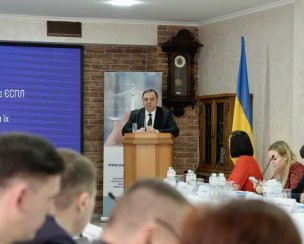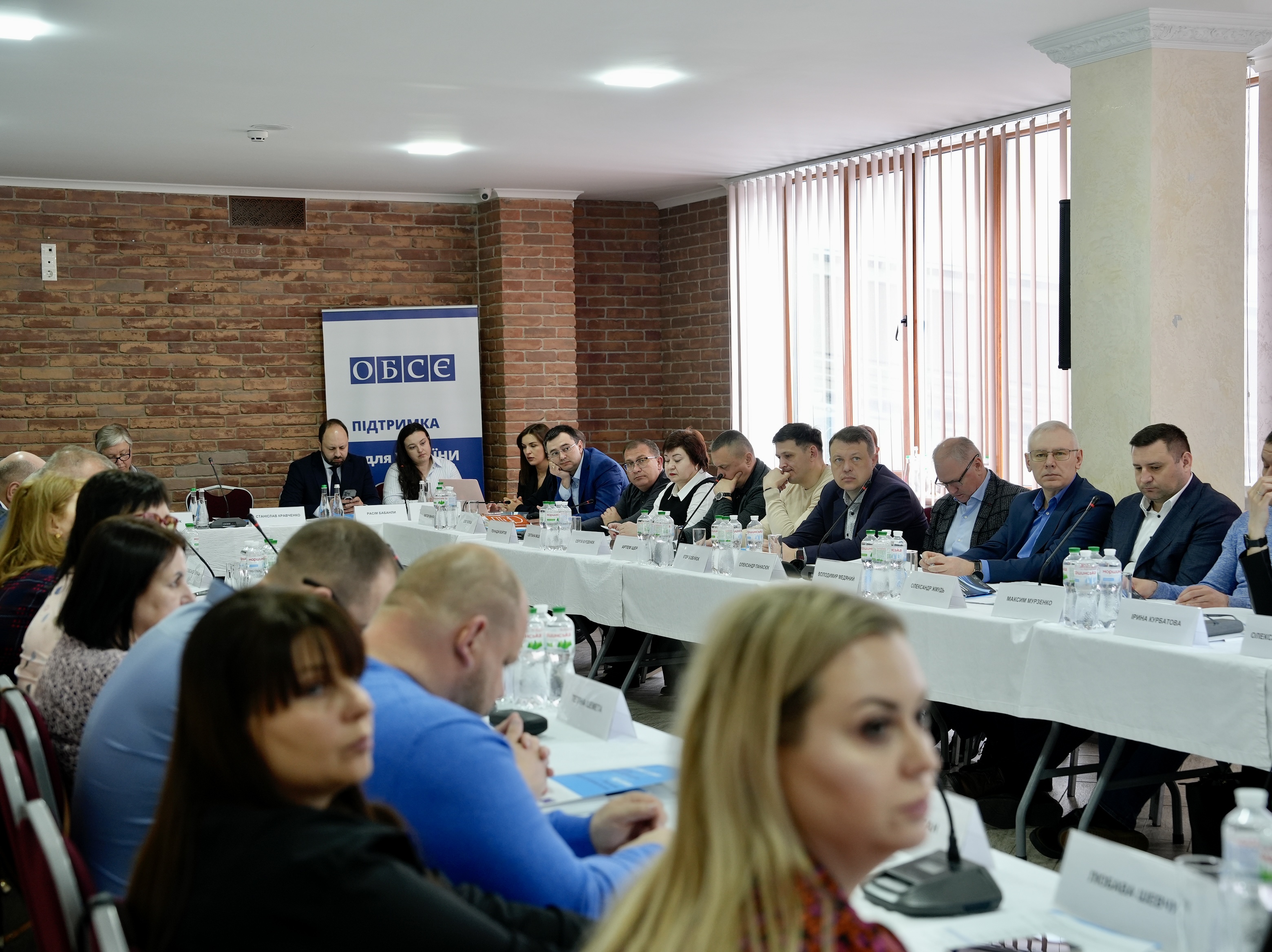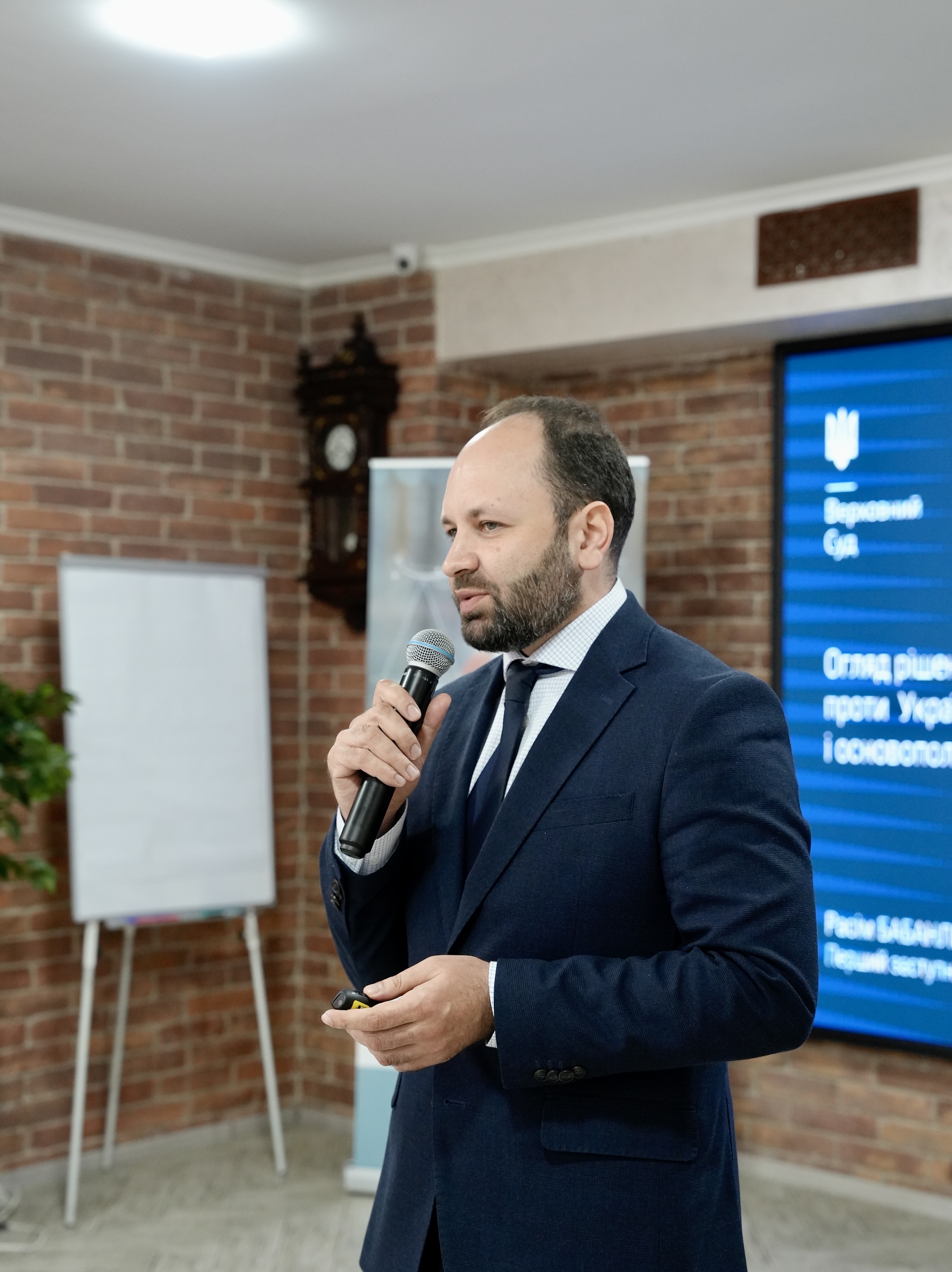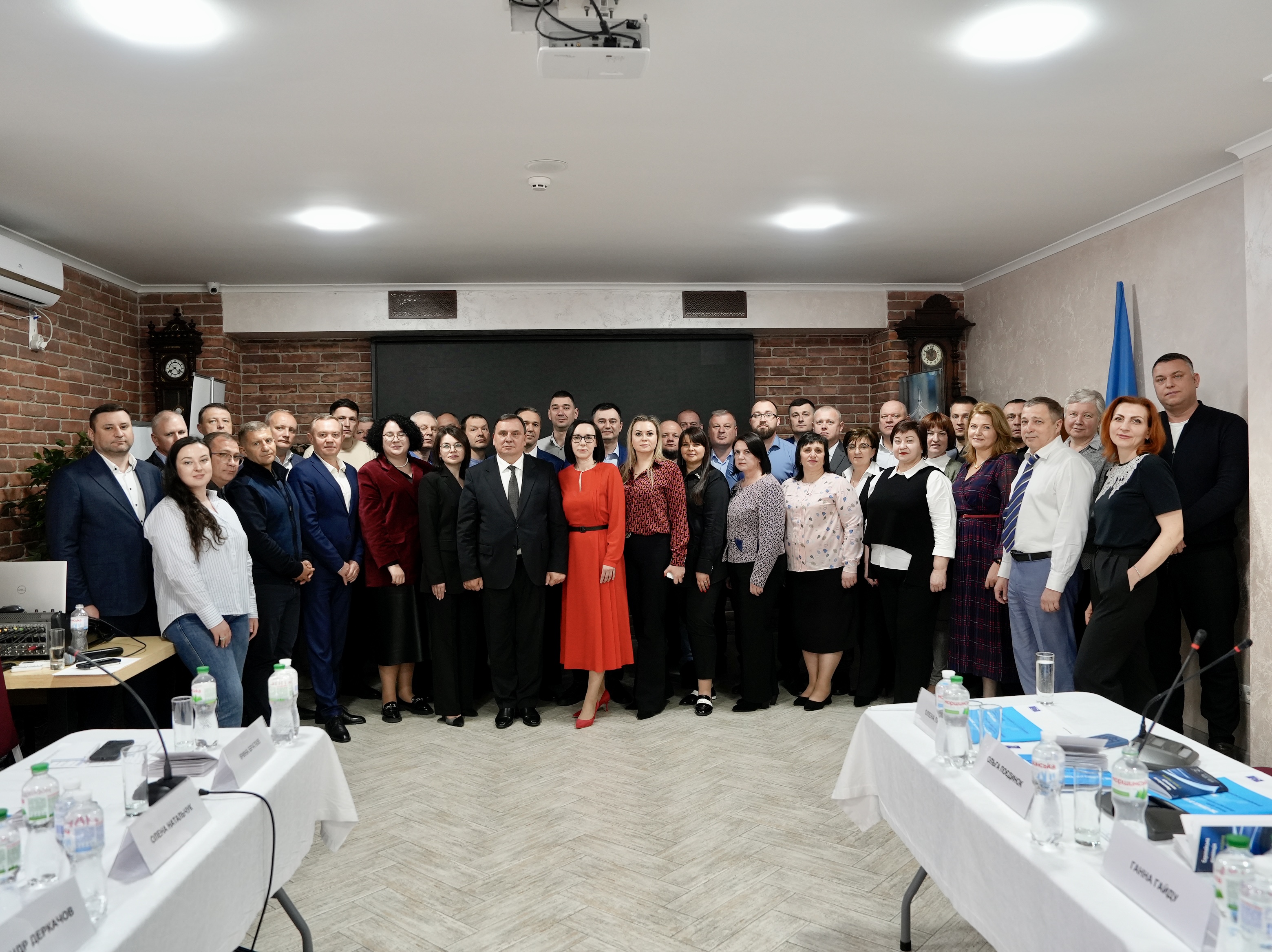Contact center of the Ukrainian Judiciary 044 207-35-46

In 2023, the European Court of Human Rights issued 130 judgments against Ukraine. In 123 of them, at least one violation of the Convention for the Protection of Human Rights and Fundamental Freedoms was found. Most of the violations identified are related to long-standing systemic problems, the successful resolution of which will require consolidated action by all Ukrainian government agencies.
The Supreme Court pays considerable attention to this issue and regularly prepares and sends to the courts of first and appeal instances information on the judgments of the ECHR, as well as analytical reviews of the final judgments of the Court against Ukraine. This provides additional guarantees for the respect of human rights and fundamental freedoms in the administration of justice and prevents their restriction or violation.
This was stated by Stanislav Kravchenko, President of the Supreme Court, during a roundtable discussion on the recent jurisprudence of the European Court of Human Rights in cases against Ukraine and other Council of Europe member states.
The President of the Supreme Court informed that the analysis of the violations of the Convention found by the ECHR in its judgments against Ukraine in 2023 revealed the following systemic problems:
The President of the Supreme Court stressed that the key problem under Article 5 of the Convention was the repeated extension of detention on the same grounds as the previous decisions. According to ECHR case law, criminal proceedings are in a constant state of flux and the court must respond to this flux.
"It is clear that the reason for prolonged detention is the lack of human resources in the judicial system. This problem should be solved by creating a new network of courts that correspond to the administrative and territorial structure of the state. Otherwise, it will be impossible to deal with the volume of cases coming before the courts," Stanislav Kravchenko stressed.

The President of the Supreme Court also drew attention to the violations of Article 6 of the Convention found by the ECHR in judgments in cases against Ukraine, which consisted of:
Stanislav Kravchenko also said that the Supreme Court's working group on solving the problem of the excessive length of court proceedings had analysed judgments in civil and criminal cases to determine the length of their consideration. As a result, it found that, in general, civil cases and criminal proceedings are considered by the courts within a reasonable time (cases completed in 2018-2020 were analysed).
Thus, the average duration of consideration of civil cases not subject to cassation review is 1.7 years, and those reviewed in cassation - 3.1 years; criminal cases (proceedings) not reviewed in cassation - 1.9 years (from the moment of committing the crime to the completion of the appellate review), 1.4 years (from the moment of submission of the proceedings to the court to the completion of the appellate review); criminal cases (proceedings) that were reviewed in cassation - 3.6 years (from the moment the crime was committed until the completion of the cassation review), 2.7 years (from the moment the proceedings were submitted to the court until the completion of the appellate review).
In conclusion, the President of the Supreme Court stressed that knowledge and understanding of the case law of the ECHR will determine how confidently we will bring our legal system closer to European standards, and expressed his gratitude to the Council of Europe's Department for Cooperation Programmes within the projects "Support for the functioning of justice in the war and post-war context in Ukraine" and "Fostering human rights in the criminal justice system in Ukraine" and the OSCE Support Programme for Ukraine within the project "Assisting the Supreme Court and higher courts in implementing judicial reform and ensuring access to justice in times of war" for their assistance in organising this important event.
In his speech, Rasim Babanly, First Deputy Chief of Staff of the Supreme Court, analysed several ECHR judgments in cases against Ukraine in 2022-2023.

Firstly, he referred to the judgment in Figurka v. Ukraine, in which the ECHR concluded that the absence of the prosecution party during the court's appellate review of the decision on an administrative offence under part 1 of Article 130 of the Code of Ukraine on Administrative Offences did not violate the requirements of Article 6 of the Convention, provided that the objective and subjective criteria of the court's impartiality were met.
"In this judgment, the ECHR explained in detail what constitutes the impartiality of a court, referring to its objective and subjective criteria. This is the primary decision that determines the procedural guarantees required when considering a case on an administrative offence under Article 130 of the Code of Ukraine on Administrative Offences", stated Rasim Babanly.
In the judgment in Kulish v. Ukraine, which was similar to the complaint in Figurka v. Ukraine, the ECHR stressed that the applicant and his lawyer had not raised the issue of the absence of the prosecution party either in the first instance court or in the court of appeal, and had thus failed to demonstrate that they had availed themselves of the remedies available at national level. The complaint in this case was therefore declared inadmissible.
The case of Grebenyuk v. Ukraine concerned the fact that the court of first instance had acquitted the defendant, while the court of appeal had found him guilty. At the same time, the court of appeal did not question some witnesses whose testimony had justified the acquittal by the court of first instance. The ECHR declared the application inadmissible on the grounds, inter alia, that the testimony did not relate to a key element of the charges against the applicant, that the court of appeal had thoroughly examined all the key evidence and had given reasons for disagreeing with the first instance court's assessment of that evidence, and that the applicant had had the opportunity to comment on and challenge all the evidence in the case.
In the case of Goryachyy v. Ukraine, the applicant alleged violation of Article 6 of the Convention in that he had been sent a notice of the trial in the court of appeal by letter, which was returned to the court with a mark of undeliverable. Therefore, the court considered the case in the absence of the parties.
"In its judgment, the ECHR reiterated its argument that Article 6 of the Convention does not go so far as to guarantee the perfect functioning of the postal system. In its practice, the ECHR often points out that a person has an obligation to monitor his or her own mail correspondence, so the sending of a letter notifying of the proceedings played a key role in this case," the speaker explained.
In the circumstances of the case of Bogdan v. Ukraine, there was a waiver of defence counsel by a person suffering from drug addiction. The applicant was suffering from it at the time of his arrest and signed a waiver of his right to a lawyer two days later.
The ECHR concluded that since there was no indication that the applicant had access to drugs or substitution treatment while under police control, his statement that he was already in withdrawal at the time he signed the waiver could be considered credible.
"In cases where there are signs that a person is suffering from drug addiction, the factor of waiver of defence counsel should be assessed very carefully. Of course, this decision cannot be interpreted to mean that such a person's refusal to have a defence lawyer is a distortion of his or her will in all cases, but the totality of all the circumstances must be taken into account," Rasim Babanly noted.
Supreme Court Judge of the Criminal Cassation Court Nataliia Marchuk outlined the challenges faced by the courts in the context of implementing Article 6 of the Convention under martial law. These include the violation of reasonable time limits for consideration of criminal proceedings due to the transfer of materials from one court to another and the inability to fully exercise all the rights of participants in the proceedings when a hearing is held via videoconference.

The judge also raised the controversial issue of the admissibility of the defendant's participation in the trial via videoconference using his own technical means, provided that the person is wanted.
"Another challenge is criminal proceedings considered under a special procedure in absentia. On the one hand, it is good that we have the possibility to consider proceedings even against wanted persons, but on the other hand, the question arises as to how far such persons are guaranteed access to justice and the opportunity to present their position directly before the court,' said Nataliia Marchuk.
In addition, the judge recalled the legal conclusions formulated by the Grand Chamber of the Supreme Court in its decision of 28 February 2024 in case No. 415/2182/20 (proceedings No. 13-15кс22) regarding the peculiarities of the in absentia procedure.
In connection with the discussion concerning the issue of the impartiality of the court in the context of Ukrainian courts' consideration of criminal proceedings on war crimes committed by the russian military in Ukraine, Nataliia Marchuk stressed that if the court decision is reasonable, legal, motivated, convincing and understandable, then regardless of the emotions of the judge who considered the case, he did his job and handled it responsibly.
